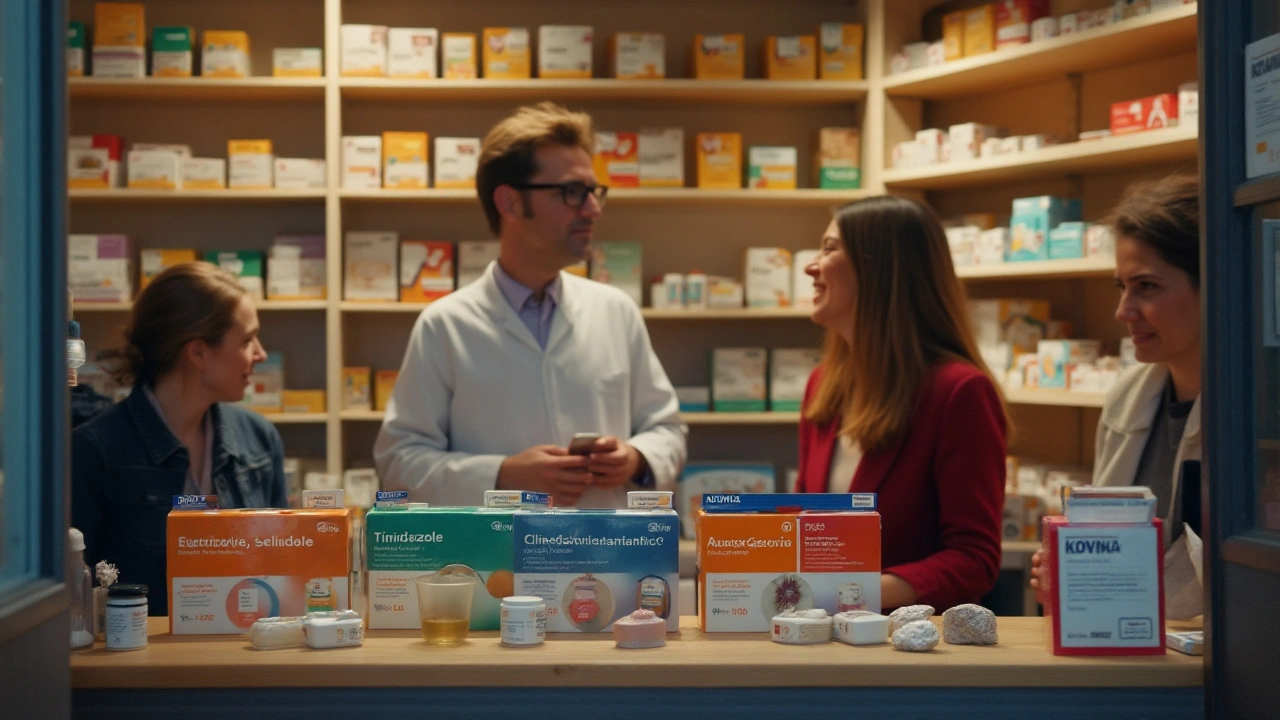Antibiotics: What You Need to Know to Stay Safe and Healthy
Antibiotics are powerful tools used to fight bacterial infections, but using them right is key. Not every infection needs antibiotics, and taking them incorrectly can cause problems like resistance or side effects. So, knowing when and how to use antibiotics helps you get better without unnecessary risks.
Common antibiotics include amoxicillin, cephalexin, and azithromycin. These medications target different bacteria types. For example, amoxicillin works well for ear infections or strep throat, while others might be better for urinary or respiratory infections. Always follow your doctor’s advice on which antibiotic fits your illness.
Choosing Safe Antibiotics and Understanding Alternatives
Sometimes, patients wonder about alternatives to common antibiotics like Bactrim or Amoxil. Alternatives like Moxifloxacin or Cephalexin might be suggested if allergies or resistance are concerns. Each comes with benefits and downsides—some may cost more or have different side effects. Talking openly with your healthcare provider can help pick the best option for your situation.
Buying antibiotics online can be risky. Not all pharmacies are reliable, and counterfeit meds are a real concern. If you consider online sources, look for licensed and verified pharmacies that protect your privacy and deliver genuine products. Being careful avoids health risks and legal issues.
Practical Tips for Using Antibiotics The Right Way
Always complete the full course of antibiotics prescribed, even if you feel better before finishing. Stopping early can leave bacteria behind to cause bigger problems. Never use leftover antibiotics or someone else’s prescription—it might not match your infection and could be harmful.
If side effects like stomach upset or allergic reactions appear, contact your doctor promptly. Also, some antibiotics interact with other meds or food, so share your full health info with your provider. Staying informed makes treatment safer and more effective.
Remember, antibiotics only work against bacteria, not viruses like colds or the flu. Overusing them can lead to antibiotic resistance, making future infections harder to treat. Using antibiotics wisely protects your health and helps keep these drugs effective for everyone.
Flagyl is a well-known medication for treating various infections, but there are several effective alternatives available in 2024. This article explores five options, detailing their uses, benefits, and drawbacks. We'll cover second-generation antibiotics like Tinidazole and Secnidazole, as well as other options like Clindamycin, Vancomycin, and Nitazoxanide. Find out which alternative might be suitable for your treatment needs.

